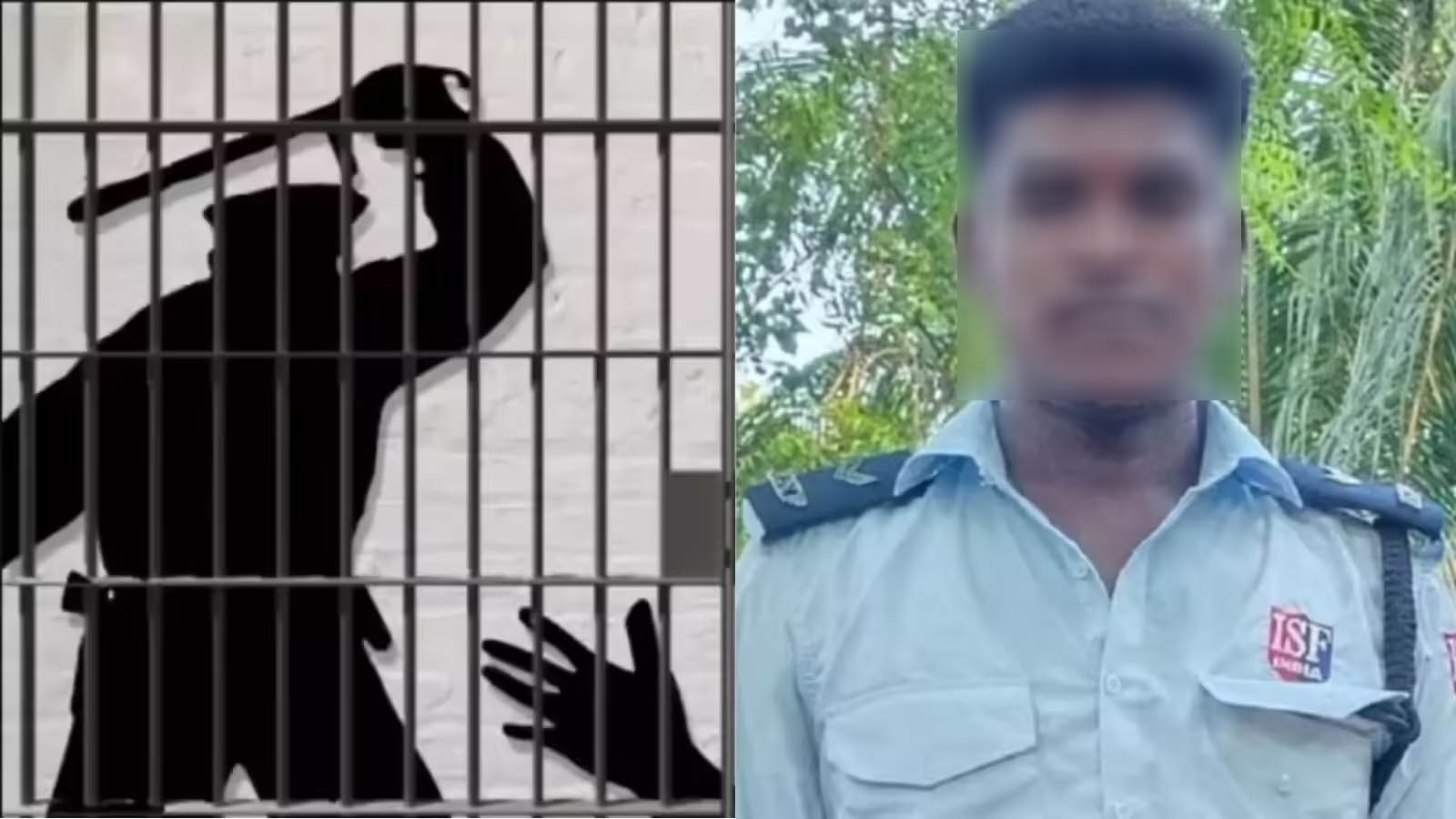A suspect, tortured to death outside CCTV coverage
According to court proceedings before the Madurai Bench of the Madras High Court, Justices S.M. Subramaniam and A.D. Maria Clete expressed severe displeasure with the police’s conduct and questioned the very legality of Ajith Kumar’s detention. The police allegedly took Ajith Kumar to the temple cattle shed and other secluded areas — avoiding CCTV surveillance — and beat him black and blue with plastic pipes and iron rods. He was later brought to the police station and eventually declared dead. This case of custodial torture has sparked outrage in Tamil Nadu and beyond.
Human rights lawyer Henri Tiphagne submitted video evidence allegedly showing Ajith being beaten by police officers inside Thiruppuvanam police station. The footage, captured by a temple employee named Sakthiswaran, was described by the court as shocking. In a revelation that shocked the bench, it was stated that the Superintendent of Police (SP) of Sivagangai district was present at the station during the torture.
Madras High Court: “Not even an FIR?”
The State informed the court that a CSR entry was made based on a complaint filed on June 28, 2025, regarding missing jewellery, but no FIR was registered. The court was aghast: “If this was merely a theft investigation, why was the suspect beaten to death?” questioned the bench. Judges demanded to know who authorised the special team that interrogated Ajith and whether such teams were formed on the basis of social media posts.
Adding to the irregularities, the court highlighted that the SP had merely been transferred and not suspended. The judges further criticised the government’s claim that action was being taken, calling it wholly insufficient.
Autopsy reveals 18 injuries, video confirms beating
India Today accessed an exclusive video showing Ajith being thrashed with a lathi by policemen. The autopsy confirmed 18 distinct injuries on his body. As outrage grew, the Tamil Nadu government handed over the case to the CB-CID. However, the court observed that police cannot investigate cases against their own ranks and called for independent accountability.
Tamil Nadu Custodial Death Case || ‘Clincher’ Video Emerges
On Cam: Temple security guard thrashed.
Guard Ajith Kumar was picked up by the police in connection with a gold theft case. In the video, police personnel can be seen beating him with sticks: @dharannniii shares more… pic.twitter.com/vBYL0jpRJE
— TIMES NOW (@TimesNow) July 1, 2025
Echoes of Sathankulam: Will Tamil Nadu ever learn?
The events chillingly mirror the Sathankulam case of 2020, where Jeyaraj and his son Bennix were brutally tortured and killed in custody for allegedly violating lockdown timings. In that case, the intervention of the judiciary and public outrage led to the arrest and prosecution of several police officials. The Madras High Court in that case had relied on the testimony of an independent judicial officer to uncover the truth.
Just like in Sathankulam, the initial attempt in Ajith Kumar’s case also seems to involve a cover-up, delayed documentation, and failure to follow legal procedure — from absence of FIR to delayed autopsy to vague accountability. The question haunting observers remains the same: Has anything changed in Tamil Nadu’s policing culture?
India’s international obligations: UNCAT still unratified
Ajith Kumar’s death also reopens the debate on India’s failure to ratify the UN Convention Against Torture (UNCAT). Despite signing it in 1997, India has not enacted an anti-torture law. UNCAT mandates prohibition, criminalization, independent investigation, and compensation for custodial torture — all glaringly absent in this case.
In cases like DK Basu v. State of West Bengal (1997), the Supreme Court emphasized that third-degree methods have no place in a democratic setup. Article 21 of the Constitution guarantees the right to life and liberty. Yet, as in Ajith Kumar’s case, these rights are repeatedly violated in police custody with impunity.
Widespread custodial deaths: A nationwide pattern of impunity
According to data shared by the Ministry of Home Affairs with the Lok Sabha, there were 2,152 deaths in judicial custody and 155 in police custody in 2021–22 alone. Despite these alarming figures, disciplinary action was taken in only 21 cases in five years, with zero prosecutions.
The National Human Rights Commission had announced a total compensation of ₹4.53 crore in 137 custodial death cases in 2021–22 — a drop from ₹4.88 crore in the previous year. The data underscores a systemic failure to hold perpetrators accountable. Tamil Nadu, despite its history of custodial violence cases like Sathankulam and now Ajith Kumar, continues to exhibit a culture of impunity reinforced by the lack of anti-torture legislation.
The road ahead
The Madras High Court has ordered the Thirupuvanam Judicial Magistrate and the Dean of Government Rajaji Hospital to file preliminary and post-mortem reports. Witnesses including temple officials and video documenter Shakthiswaran have been summoned. Petitions are pending seeking CBI/SIT probe and compensation to the victim’s family.
Whether the judiciary’s timely intervention will lead to accountability in this case — or fade into routine impunity — remains to be seen. But what is already clear is this: Ajith Kumar’s death is not an isolated tragedy. It is a systemic collapse.
(The author is a law student and a former intern at cjp.org.in.)
Related:
TN custodial death report establishes complicity of police, hospital staff and jail authorities
CBI chargesheet confirms brutal torture on Jeyaraj and Bennicks
Death in Chains: Indian Courts award reparation for deaths in custody, deaths rise alarmingly
